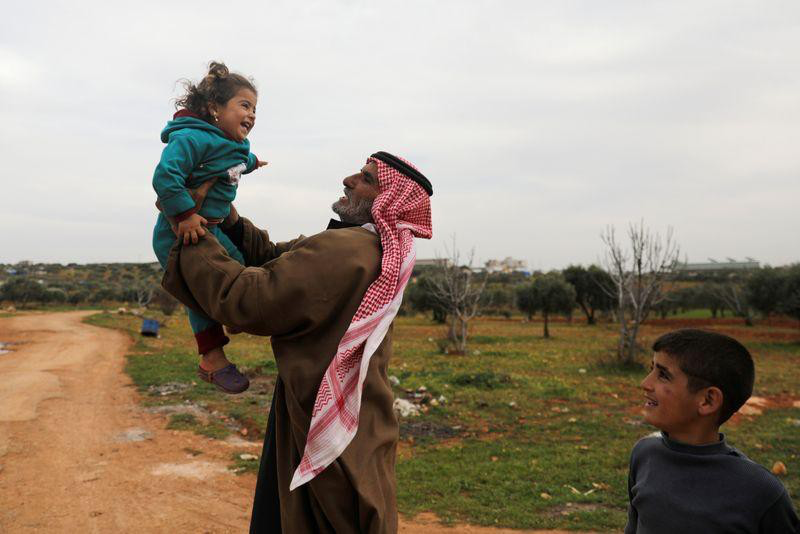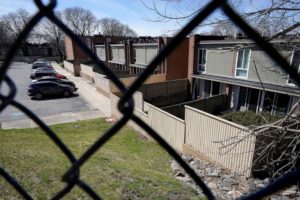IDLIB, Syria (Reuters) – Abdel Razzak al-Khatoun was a well-to-do farmer in Syria’s rural Hama province. Ten years after the civil war began, he is penniless, homeless and living in a tent in northern Idlib.
Far worse, he said he had lost 13 sons in the conflict, the oldest aged 27 and the youngest 13. Some were rebels opposed to the government of President Bashar al-Assad who were killed in the fighting.
His wife also died when a rocket hit their home in Hama as they were about to have their morning tea. After the missile struck, he managed to climb his way out of the rubble and found her remains.
Khatoun’s account of the civil war, which Reuters could not independently verify, is not uncommon. Hundreds of thousands of people have been killed in the fighting which began with protests that quickly turned violent in 2011.
Millions more, like Khatoun, have fled their homes for safer areas within Syria or as refugees abroad.
Assad has survived the insurgency, and now holds sway over many parts of the country, helped by Russia’s military and Iran’s Shi’ite militias. He is set to maintain power after a presidential election later this year.
Hostile Turkey still controls territory in the northwest where Khatoun is, while the United States has a presence in the northeast, a major oil and wheat producing area.
Despite the rebels’ defeat and Assad’s ascendancy, Khatoun remains defiant.
“Anyone with a brain will conclude that they have to oppose the (Assad) regime,” he told Reuters in his tent, located in a large camp for internally displaced Syrians. “I gave up my martyrs and I have no regrets.”
‘I STILL THANK GOD’
When protests broke out in March 2011, Khatoun, now 84, and his sons were quick to join. Three of them were killed during the first year.
As the demonstrations turned into full-fledged conflict and some of them took up arms, he lost more.
Wearing a red headscarf and shedding tears as he spoke, Khatoun recalled coming across a video on his phone which he said showed the grisly execution of one of his sons.
Such footage was circulated regularly by pro-Assad forces early on in the conflict to intimidate the opposition, activists said.
“I was looking through the phone the other day and I came across the clip… My tears just started to fall, they were in the flower of youth and yet I’ve lost all of them. What more can I say?”
The Assad government denies that it tortures captives. Moscow and Damascus also deny accusations of indiscriminate bombing of civilians and say they only target radical militants.
After escaping to Idlib, Khatoun’s war was not over.
Idlib was the last rebel bastion in the northwest of the country, and Syrian and Russian forces pounded the area between April, 2019 and March last year, killing hundreds of people and forcing more than a million people to flee.
During that assault, Khatoun was at a local rest house in Sarakeb when a missile struck, killing seven family members.
Granddaughter Fatima survived, however, and is one of 12 grandchildren who now live with the wives of his dead sons in the same camp.
“I used to be a farmer, a top one,” he said, surrounded by the children who clambered on him affectionately. “Now I have nothing, penniless. But I still thank God for everything.”




